At Pond Cove Elementary School in Cape Elizabeth, ME, the learning doesn’t stop when the recess bell rings. Just in time for the new school year, Cape Elizabeth Land Trust (CELT) worked with community partners including the Pond Cove Playground Committee (PCPC) to design and install a series of educational signs highlighting connections between elements of the nature-based playground and the natural world. The project was funded in part by a grant from the Ed Meadows Conservation Fund which CELT received in March 2020. After a year of pandemic uncertainty, supply chain disruption, and complicated rules for school campus access, the signs are finally installed and ready for learning!
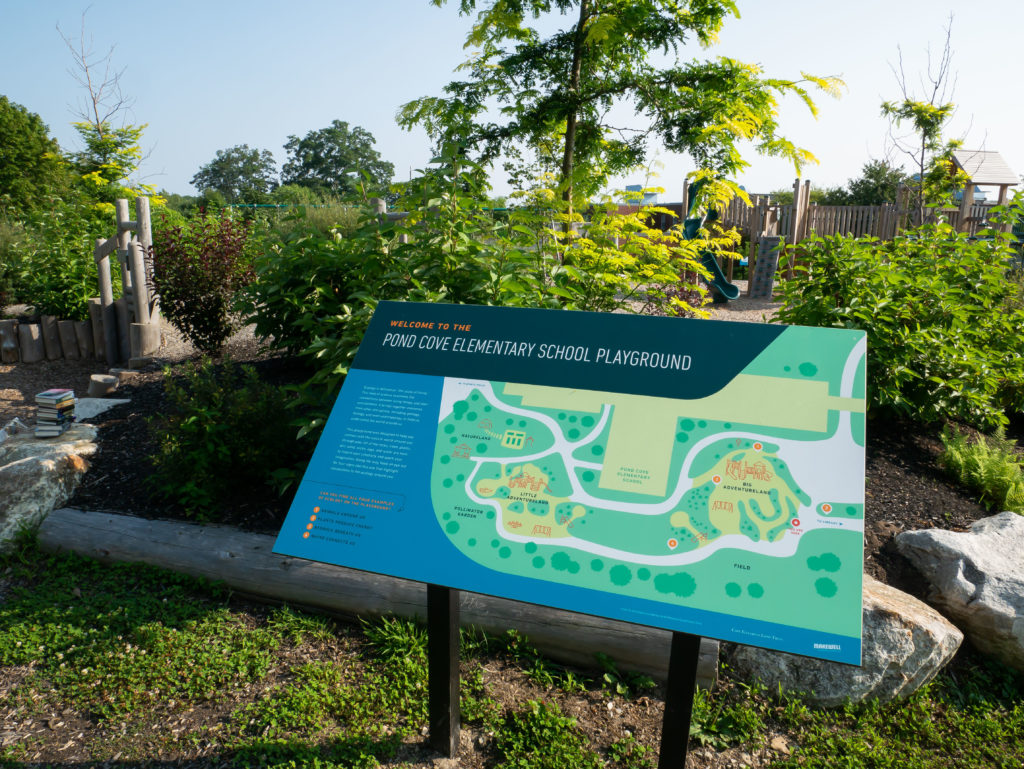
The final design features a large playground map that combines with four smaller signs to provide an overview of ecological concepts visible in the nature-themed playground. The signs are spread out around “Big Adventureland,” the section of the playground primarily utilized by older elementary school students.
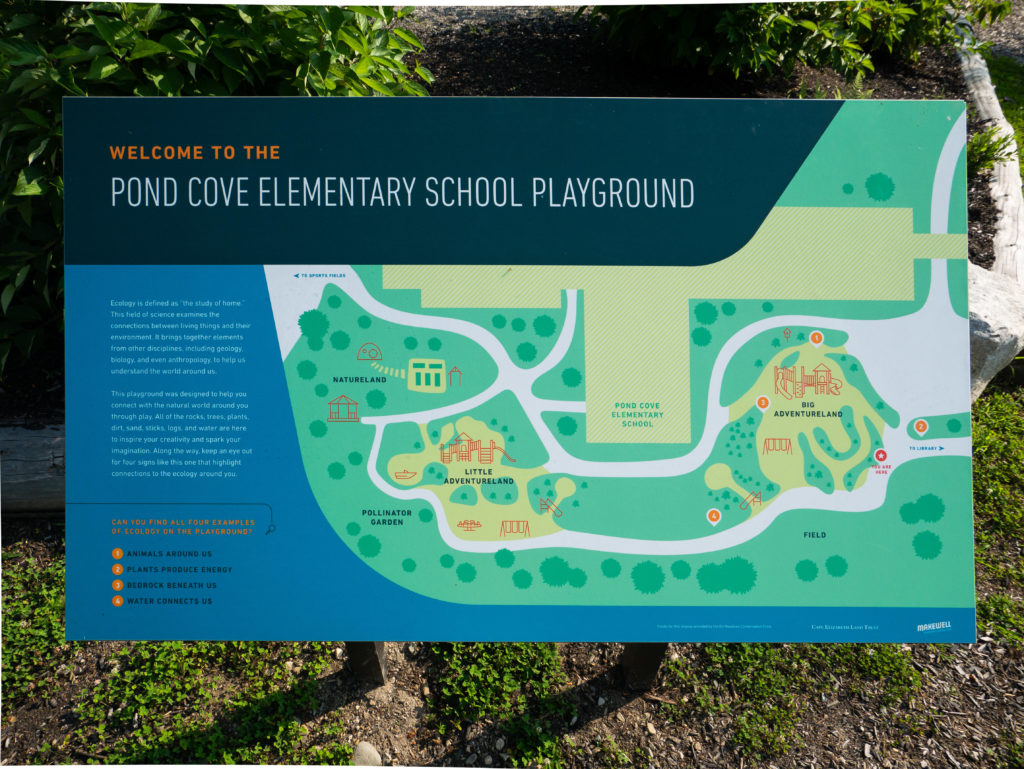
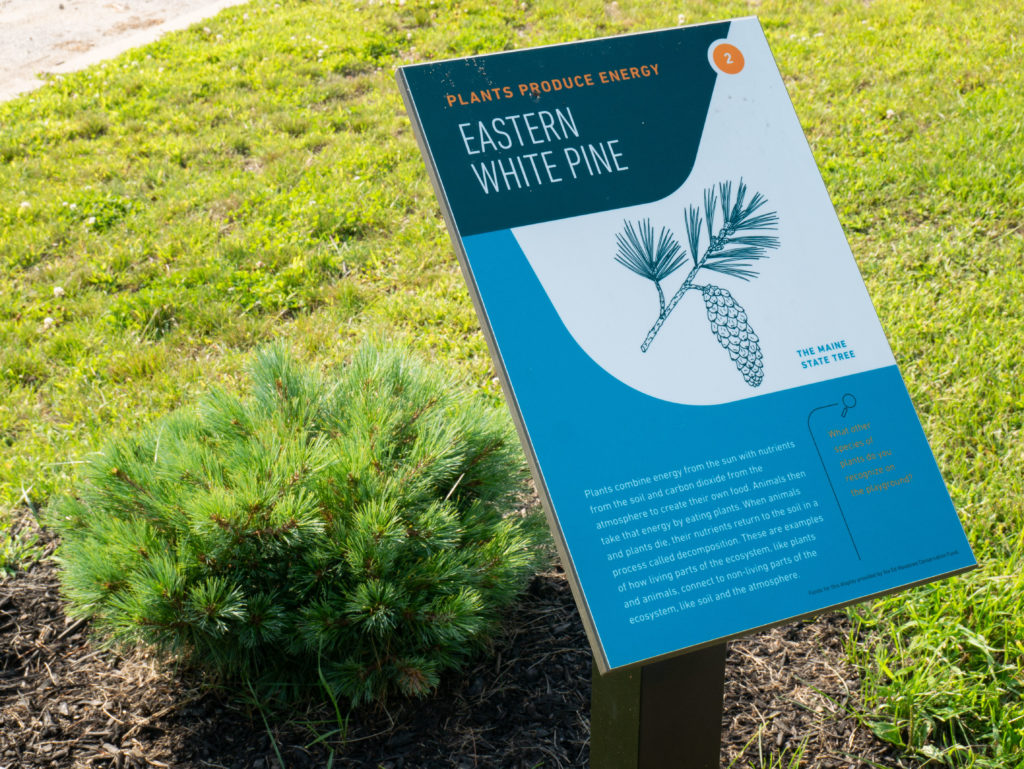
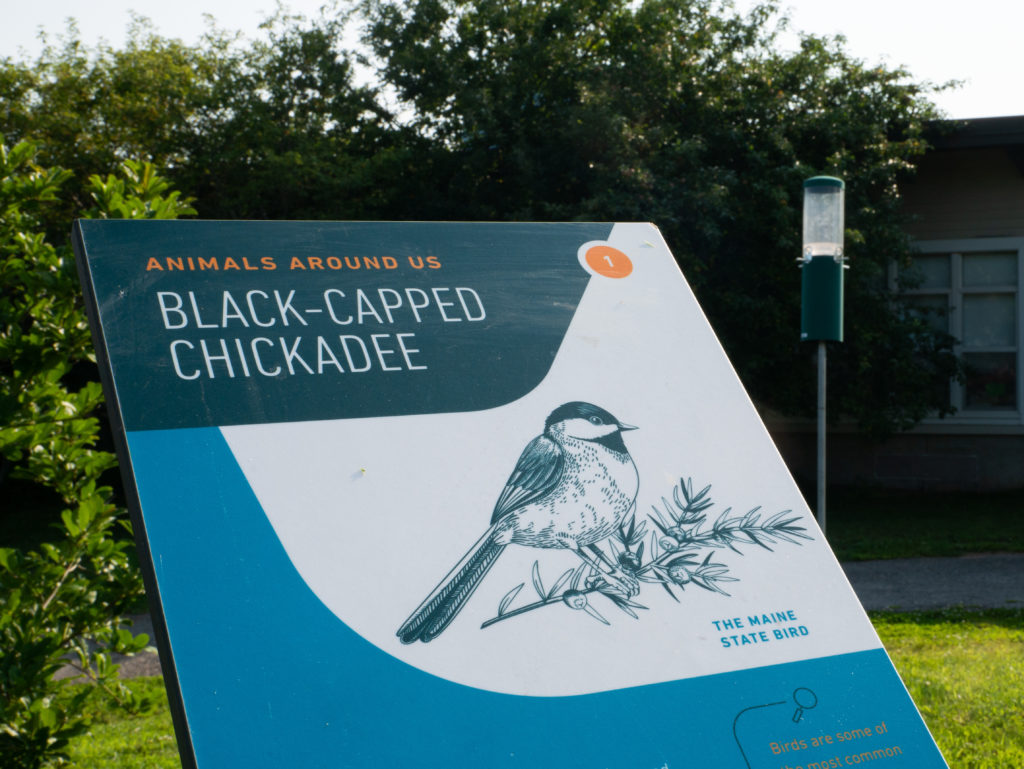
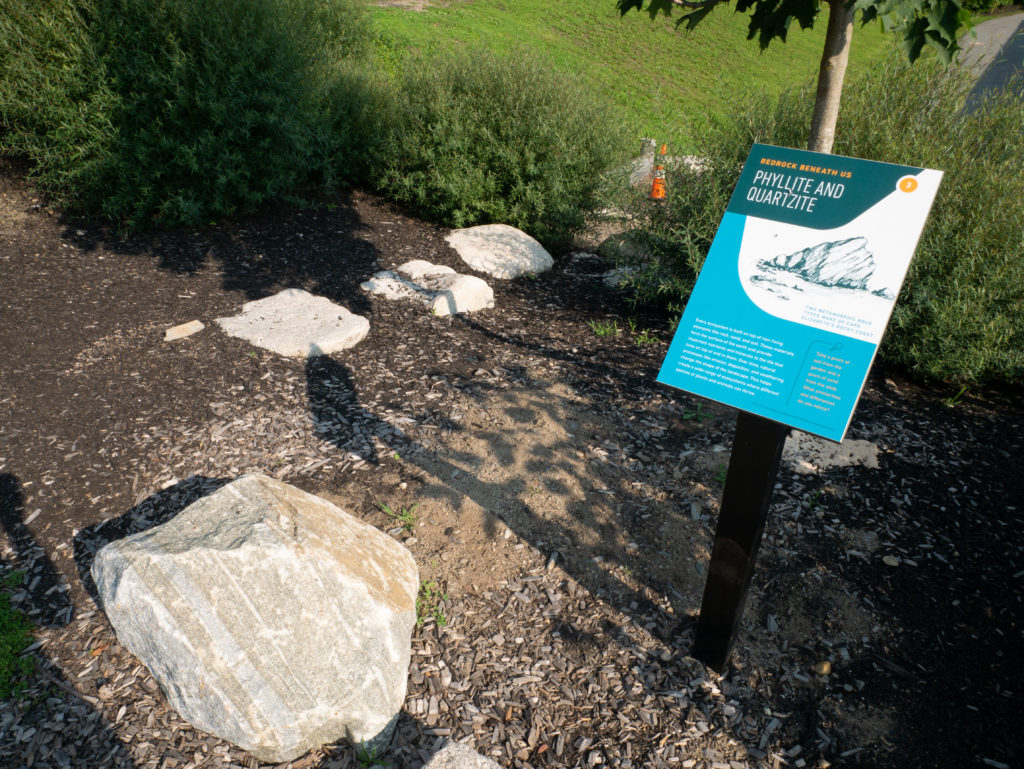
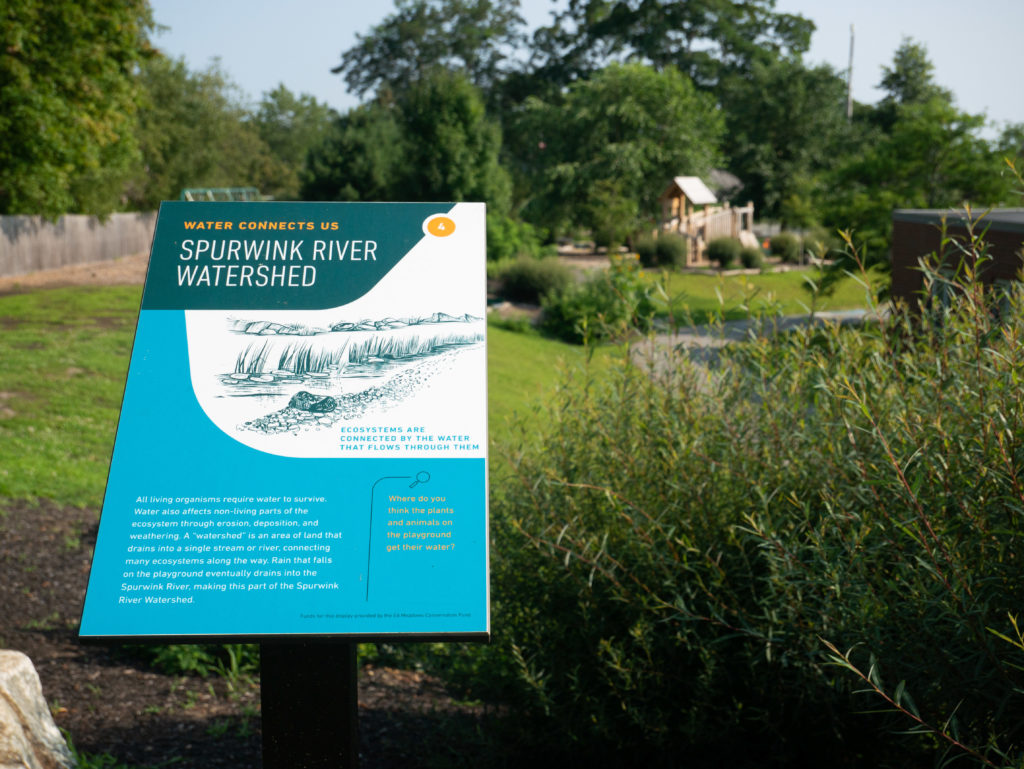
Says Lindsay Barrett, PCPC committee board member:
“The Pond Cove Playground Committee is honored to partner with CELT and the school system to continue to facilitate innovative educational opportunities in the new playground space. We’re excited about the potential for interpretive signage to boost playground users’ engagement with the natural features of the space—both during and outside of school hours. Since their install, we’ve already seen families checking them out when visiting the playground!”
Tara Bucci, a fourth-grade teacher and member of the planning committee, is looking forward to seeing students reading the interactive signs on the playground:
“Students will be connecting with the natural landscape while learning about specifically targeted concepts in Ecology,” she says. “Reading and experiential learning is not the ‘typical’ recess activity and I feel this will be a great opportunity for more students to be included during a sometimes more social part of the day. I’m interested in working closely with CELT Education Coordinator Philip Mathieu around our Fourth Grade Curriculum Maine Studies focus.”
A substantial amount of illustration and design work was contributed to the project by Melissa and Jonothan Motzkin of local design studio Makewell. Their work was guided by plans from landscape architect Sashie Misner and drone photography from Cape student Max Zimmerman.
Funds for this project were provided by the Ed Meadows Conservation Fund of the Maine Community Foundation in honor of his parents who instilled their love of nature and community service in him. Mr. Meadows was Maine Department of Conservation Commissioner 1988-1995 and Director of the Bureau of Public Lands 1987-1988. For over 40 years he played a key role in conservation of millions of acres in Maine, Michigan and other states, working in partnerships with land trusts and public agencies. CELT greatly appreciates the support received from this Fund, which previously helped to finance the interpretive panels installed in Robinson Woods Preserve.
